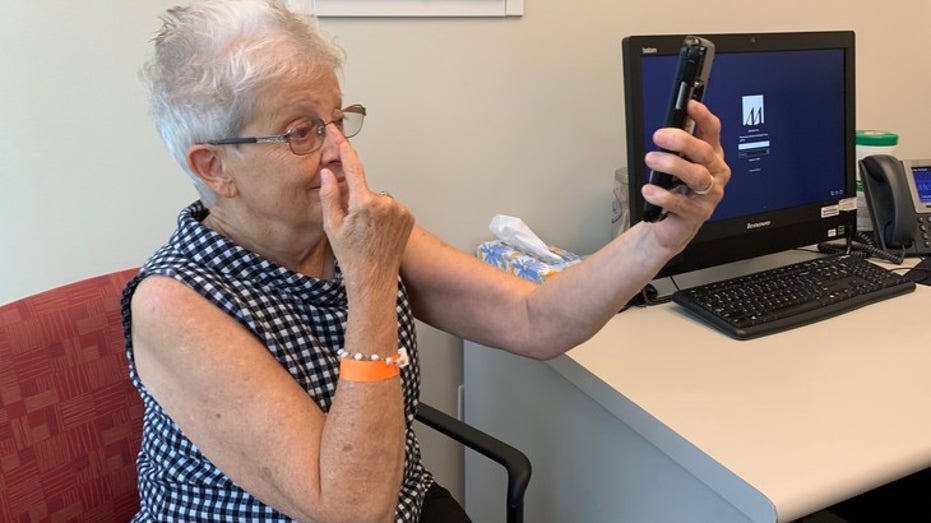Researchers develop new way to detect strokes with iPhone
Apple CEO has said the company's 'great contribution to mankind' will be in health care
A group of researchers has created a new way to use Apple's iPhone, the latest iteration of which is now for sale, to diagnose strokes.
Scientists at Penn State University have teamed up with Houston Methodist Hospital to identify the debilitating medical episodes based on abnormalities in a person's speech and facial movements detectable with the iconic smartphone.
| Ticker | Security | Last | Change | Change % |
|---|---|---|---|---|
| AAPL | APPLE INC. | 278.12 | +2.21 | +0.80% |
“When a patient experiences symptoms of a stroke, every minute counts,” said James Wang, professor of information sciences and technology at Penn State, in a statement. “But when it comes to diagnosing a stroke, emergency room physicians have limited options: send the patient for often expensive and time-consuming radioactivity-based scans or call a neurologist — a specialist who may not be immediately available — to perform clinical diagnostic tests.”

Kathryn Atkinson, a patient at Houston Methodist Hospital, participates in a smartphone screening test to analyze stroke-like symptoms. The test is powered by a machine-learning algorithm developed by researchers at Penn State's College of Informatio
NEW 5G IPHONES KICK OFF POACHING SEASON FOR CARRIERS
The researchers created a machine-learning algorithm to help aid and make the diagnosis process faster for doctors when they're looking at potential stroke victims.
“Currently, physicians have to use their past training and experience to determine at what stage a patient should be sent for a CT scan,” Wang added. “We are trying to simulate or emulate this process by using our machine-learning approach.”
The algorithm could quickly identify signs of a stroke, such as a drooping cheek or slurred speech.
“This is one of the first works that is enabling [artificial intelligence] to help with stroke diagnosis in emergency settings,” added Sharon Huang, associate professor of information sciences and technology at Penn State.
The model had a 79% accuracy rate after being tested on more than 80 patients who had experienced stroke symptoms at Houston Methodist, roughly the same accuracy rate as emergency room doctors. Where it shined, though, was its ability to assess a patient in as little as four minutes.
DAD CLAIMS APPLE WATCH DETECTED SERIOUS HEART CONDITION, SAVED HIS LIFE: 'I'M REALLY GRATEFUL'
“There are millions of neurons dying every minute during a stroke,” said John Volpi, a vascular neurologist and co-director of the Eddy Scurlock Stroke Center at Houston Methodist Hospital. “In severe strokes, it is obvious to our providers from the moment the patient enters the emergency department, but studies suggest that in the majority of strokes, which have mild to moderate symptoms, that a diagnosis can be delayed by hours and by then a patient may not be eligible for the best possible treatments.”
The research can be read in its entirety here.
CLICK HERE TO READ MORE STORIES ON FOX BUSINESS
In January 2019, Apple CEO Tim Cook said that Apple's "great contribution to mankind" would be in health care.
In October of that year, Cook expanded upon those comments, telling investors that he believes users are empowered to take charge of their health and fitness through Apple Watch features such as Cycle Tracking and the Noise and Activity apps.
"We are collaborating with leading health institutions to reach more participants than has ever been possible enabling them to contribute to potential medical discoveries and help create the next generation of innovative health products," Cook said at the time.
In April, a separate study found that wearable devices, including the Apple Watch, showed promise in detecting the spread of COVID-19.
GET FOX BUSINESS ON THE GO BY CLICKING HERE
FOX Business' Ken Martin contributed to this story.



















